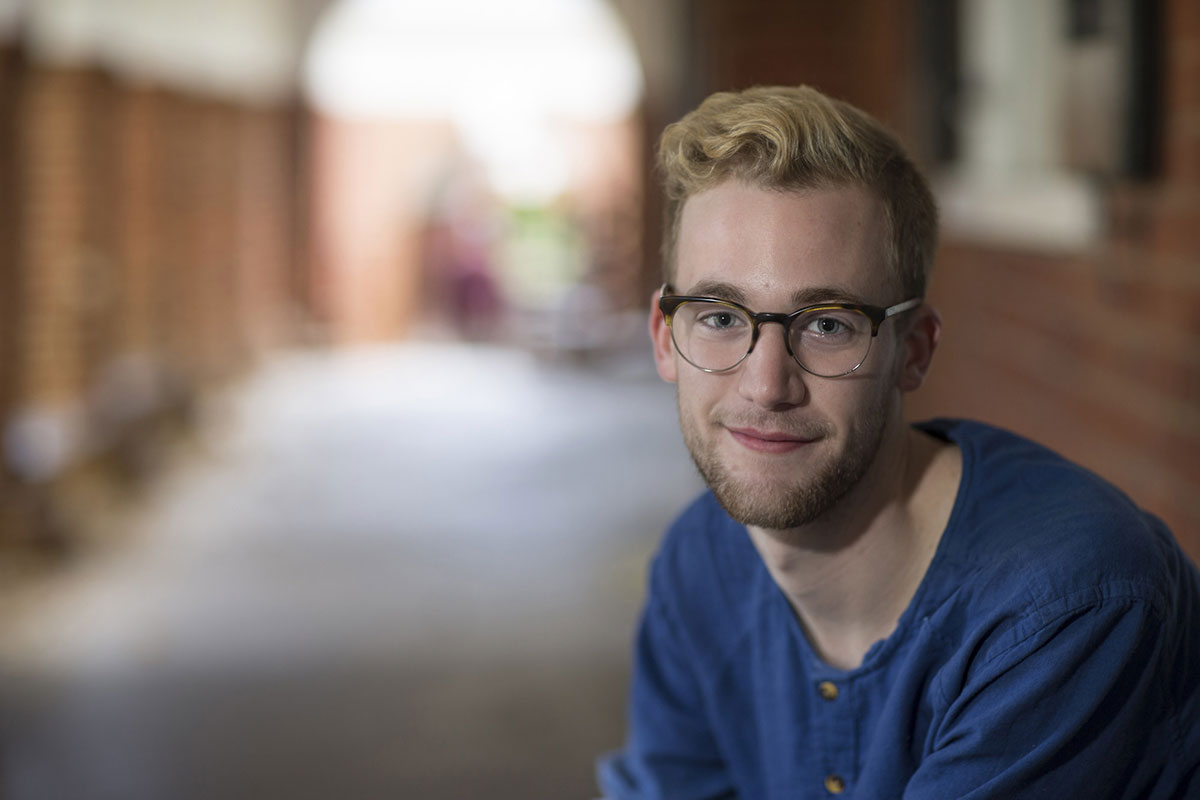William Butler is a fourth-year student at the University of Virginia, majoring in neuroscience. His family has a history of hearing loss and he wanted to better understand the mechanisms behind this condition and the current research being done to fix it.
Finding a passion for hands-on research during a summer in a UVA Medical Center neurobiology lab, the Atlanta native declared the neuroscience major during his second year. He said he enjoys the evolving nature of this field, where there is so much new discovery. After he graduates in May, he plans to pursue a career in public health.
Q. How did you initially become interested in the neuroscience major?
A. The summer after my first year at UVA, I stayed in Charlottesville to work at the hospital and joined the Auditory Neurobiology lab because I had a lot of extra time on my hands. Much of my interest in neuroscience as a field stemmed from what I was learning in the lab. I later decided to pursue the neuroscience major because it is research-intensive and I wanted to be able to closely connect the material I learned in the classroom with what I was doing in the lab.
Q. What is the most fascinating thing you’ve learned about the ear and its connection to the brain?
A. I think what fascinated me most when I first started doing research with hearing was the intricacy of the auditory system. There are so many small structures in the ear that must work perfectly in concert to send a relatively simple signal up to the brain.
I took an advanced microscopy class last semester and that was the first time that I was able to really visualize the specific part of the inner ear hair cells (where the sound is converted into a signal) that I have been working with for the past 2 1/2 years. Especially with the hair cells in the inner ear, it is incredible to see how these tiny, fragile structures are so important in hearing.
Q. How is the neuroscience major special?
A. I think what makes the neuroscience major at UVA so special is its research focus. Rather than just spending time taking classes, I get to spend a lot of time working in the lab and getting hands-on experience with what I am learning.
Q. What is it that you get to do and learn about in this field that might not be possible in other fields of science?
A. Neuroscience is a really fascinating field because it is relatively new in the grand scheme of scientific research. There is so much that we do not know about how the brain and the nervous system work, so it is a continuously evolving field. There are new publications almost weekly that change how neuroscientists approach their research.
Q. When you’re not conducting research and studying, what do you like to do in your spare time?
A. When it is a little warmer than it is now, I like to spend a lot of time outside, since there are so many beautiful outdoorsy areas around Charlottesville. Otherwise you will probably find me exploring Charlottesville’s restaurant and coffee-shop scene.
Q. How has UVA and the Charlottesville community influenced you beyond the classroom and lab?
A. One thing that I really love about UVA is its focus on extracurricular activities. While I do learn a lot in class and in the lab, there is a huge push to get out there and get involved in the community.
I feel like I have gained so much more from UVA, getting to spend time doing extracurriculars, than I would have if I had only focused on academic work. It’s a small city, but Charlottesville has a lot to offer.
Media Contact
Article Information
February 17, 2016
/content/student-spotlight-william-butler-finds-research-niche-lab

